NEW ENGLAND BUSINESS SCHOOLS

THREE BUSINESS SCHOOLS – BABSON, BENTLEY, AND BRYANT
I recently visited these three New England schools known for Business. They each have some unique characteristics. The key selling point is that these schools all deliver on the goal of preparing students for a job or career that matches the college investment. Many parents since the 2008 recession have looked toward more “practical” colleges for their children’s future.
Some initial thoughts on these schools:
Babson – In addition to their entrepreneurial education approach, they have increased their prominence as an international business college.
Bentley – A business school that prides itself on becoming more like a liberal arts school
Bryant – Historically a business school, now emphasizing more liberal arts. General feel is that it is a well rounded liberal arts school with a very strong business focus.
BABSON
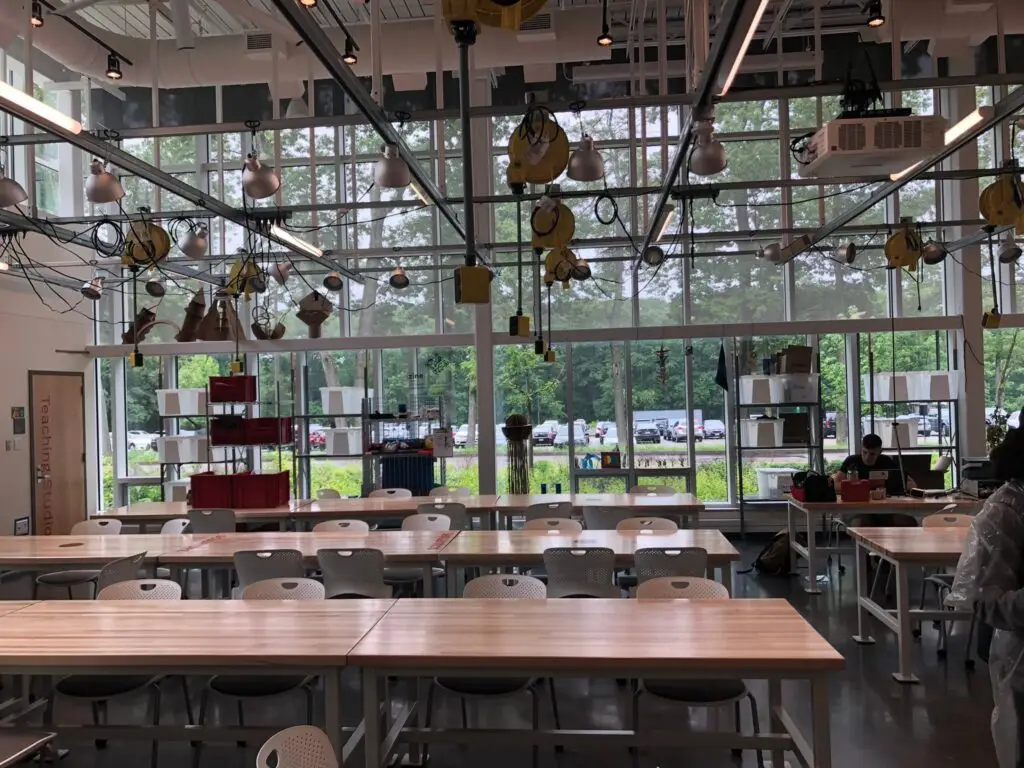
I was curious to see Babson. Early in my corporate career, I worked with a Babson graduate who had a glowing personality with a confidence in business well beyond his years. I am happy to say that my impression of Babson was substantiated during my visit.
Entrepreneurial Culture and Environment: Known for their early roots in entrepreneurial business education, Babson doesn’t just use this terminology lightly, but rather it is embedded deep in their culture. Entrepreneurial business success comes from a strong foundation in business. Key to being entrepreneurial is to accept failure as a pathway to success.
It is no accident that the first stop on our Babson tour was to take us to their Foundry. A unique space for such a small college shared between Wellesley College and the Olin School of Engineering. It reminded me of a similar space I had seen at Northwestern University in their engineering building.
Their signature Shark Tank like program is a course that starts with students pitching an idea for a business and through a competitive selection process, the class decides on two businesses. As the class progresses, classmates that did not have their business selected join one of the two business teams. Any proceeds from the business go to charity.
Seven Babson alumni and one current student have appeared on ABC’s “SharkTank” to pitch their ideas to discerning investors.
I didn’t know till my visit that the founders of Bombas socks were local Westchester County students– David and Andrew Heath- with strong Babson roots. I know their Dad and at a recent event he raised his pant leg to show me his socks and proudly talked about his sons and how they progressed through to their successful business. What I didn’t know was that they had gained their business education at Babson.
Even as a young boy, David always knew he wanted to run his own business. Later, in high school, he realized there was only one college he wanted to attend; he applied early to Babson College, was accepted and graduated in 2005.
Andrew, the more athletic of the brothers, went to Occidental University to play water polo. He graduated in 2004 with a degree in economics and spent eight years in corporate finance. Recognizing how much David loved his Babson education, Andrew decided to attend Babson for an MBA, completed in 2012.
Prior to the Babson visit, my experience with entrepreneurs was tainted by my own experience; the ones that used the E-word in my business career were “cowboys/cowgirls” — brash, bold and usually flying by the seat of their pants. What I heard from my Babson visit was the importance of the business foundation underneath the bling.

An International Magnet:
Babson doesn’t just talk about their international flair (as noted in the globe picture with the flags from around the world), but there are nearly 28% International students. What better way to understand different cultures and communities, than to work side by side in class and on teams.
BENTLEY
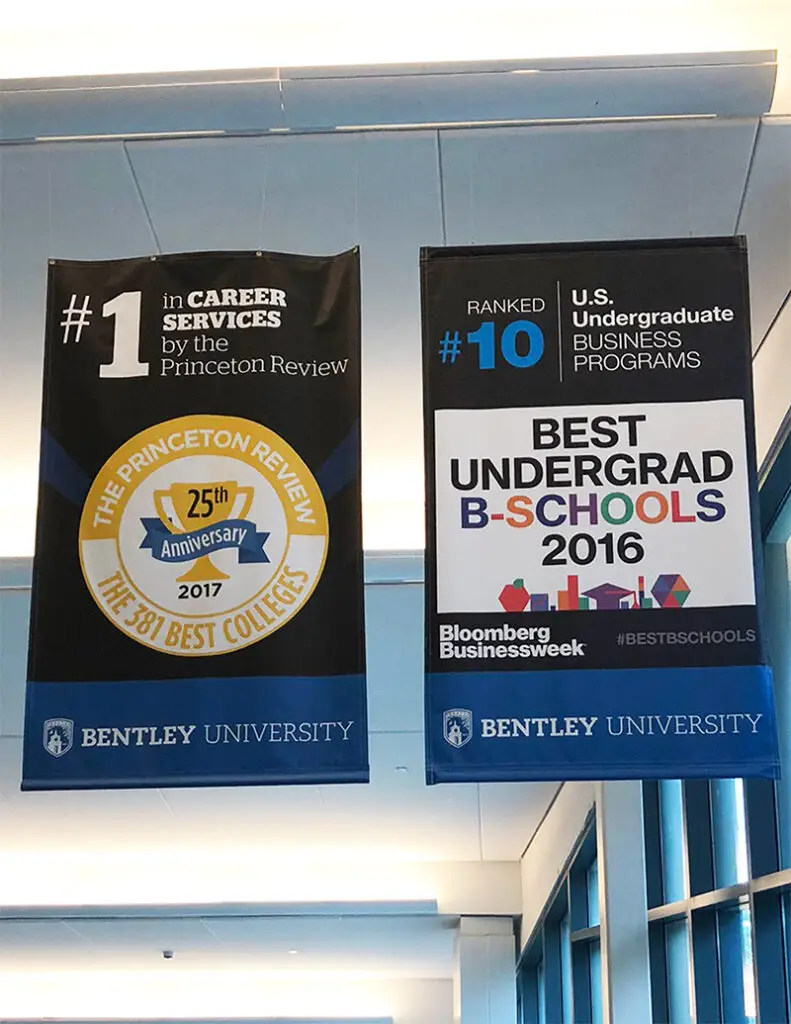
Bentley classifies themselves as a “Business University”.
One of the strengths of Bentley is working with students that are non-declared relative to what type of business major they would like to start with. A student may come in with an interest in marketing and learn that it doesn’t fit.
Students start their program with General Business Ed then progress to a general education core, intensify through to their selected major(s) and finally cap things off with some liberal studies majors.
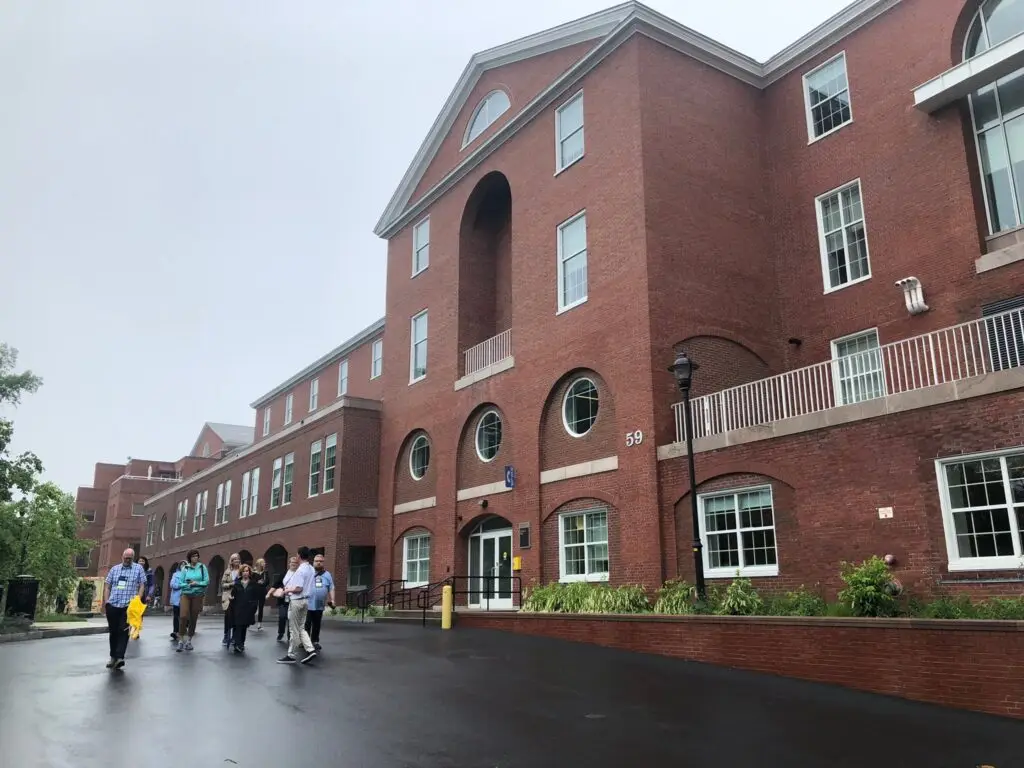
Some key Key features:
- Known for their Large trading Room
- Students can get Bloomberg Certified
- New Female President, was Dean of Michigan’s Business School
- Alison Davis-Blake, Ph.D., the former dean of the University of Michigan’s Ross School of Business and the University of Minnesota’s Carlson School of Management, has been appointed the eighth president of Bentley University
- There are NO lecture halls; classes capped at 35 students
- Ongoing relationships with companies that engage students
- Pair with Business universities abroad
- Internship Leadership; tightly connected with Boston companies.
- 92% complete 1 internship
- 71% complete 1 or more internships
- Median starting salary for graduates of $59,000
- Women in Leadership Scholarship
- Business is broad, but still known for its corporate finance and accounting programs
- Looking for Joiners and Doers-
- Looking for DECA and Junior Achievement, Future Business Leaders
- Looking for a Business FIT
- Highly competitive–
- 9000 applications
- 985 Enroll
- Holistic review of application—spend about 25 minutes per applicant; using 3 readers
- Students receive a special dedicated career counselor
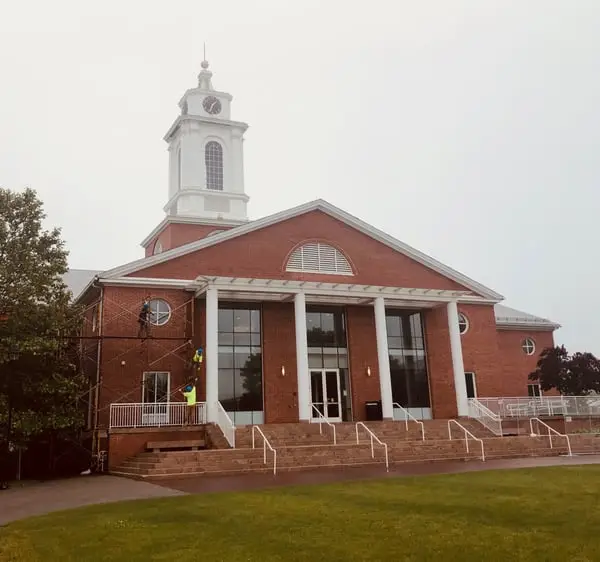
This is the perfect school if you want your son or daughter to graduate with a job and a career in business thanks to its practical hands-on learning.
BRYANT
During my visit, I was struck by the similarity of the campus to that of a business campus. The campus buildings and rooms looked more like pods, conference rooms than a stodgy traditional college look.

The picture above is their new Innovation Forum within the Academic Innovation Center (AIC) in the process of some screen upgrades. The shot below was what things looked like before my visit. Within the AIC 48,000 square footprint are breakout spaces that inspire design thinking and creative problem solving; tiered classrooms that encourage debate and build critical thinking and communication skills; flat classrooms that support flexible teaching styles and encourage collaboration; and the Innovation Forum, a space where furnishings and whiteboards can be reconfigured to support various group learning activities.
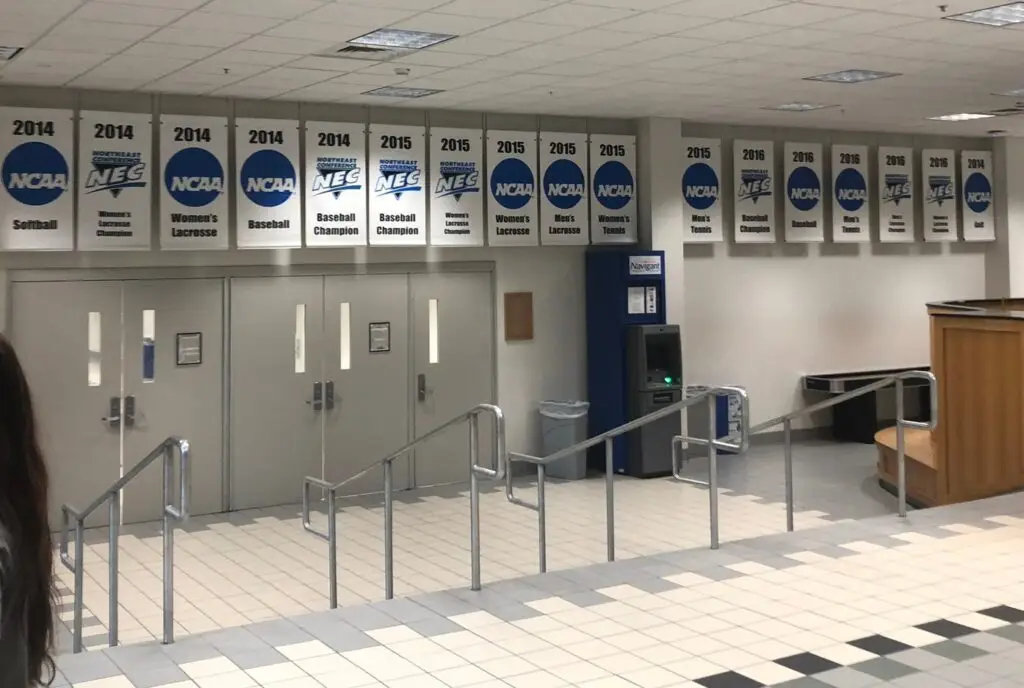
Bryant has an Integrated curriculum:
All Bryant students either Major in Business and Minor in the Liberal Arts OR Major in arts and science and Minor in business. So, every student has either a major or minor in business.
- Median starting salary for graduates of $60,000
- Over 50% of students study abroad
- 22 Division 1 varsity sports
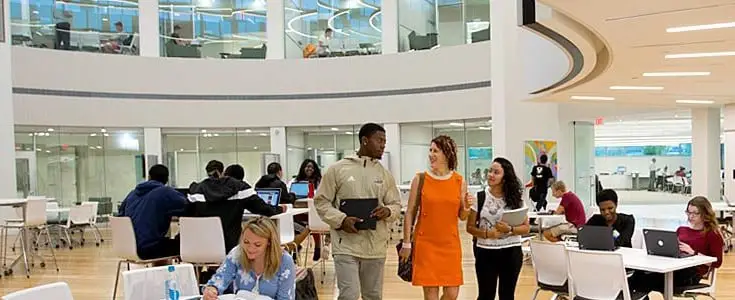
- 100% participate in at least one service learning project
- 400+ companies and organizations participate in recruiting Bryant students
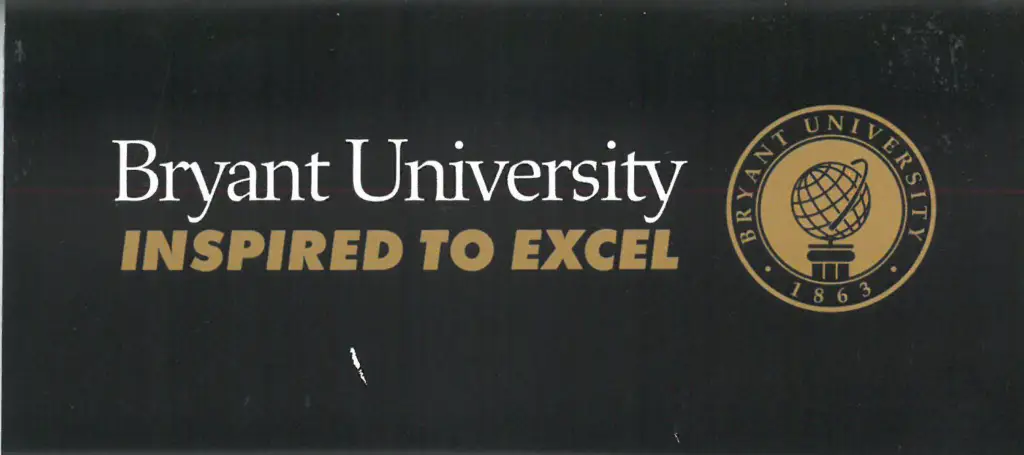
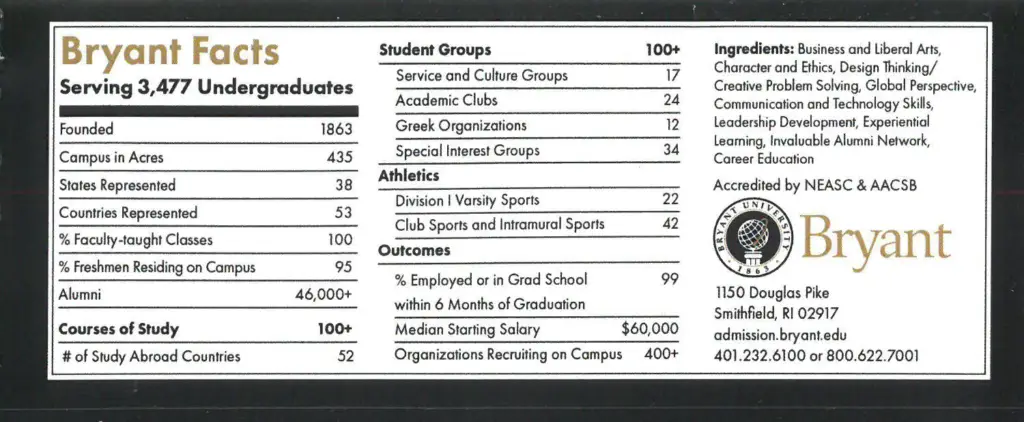
Summary:
With my background working at a Fortune 500 technology company for over a quarter century, and starting up a division within my time there, I am attracted to the business school approach. Quite frankly, I wish I had the experience students from these three schools are able to get while still in college versus all of the on-the-job training that I received. So, it is no wonder that I am excited to write this particular post. With such a strong disconnect between high school and the business opportunities that most students will face, it is refreshing to see these institutions smooth out the rough spots of the transition and better prepare our future business leaders.








